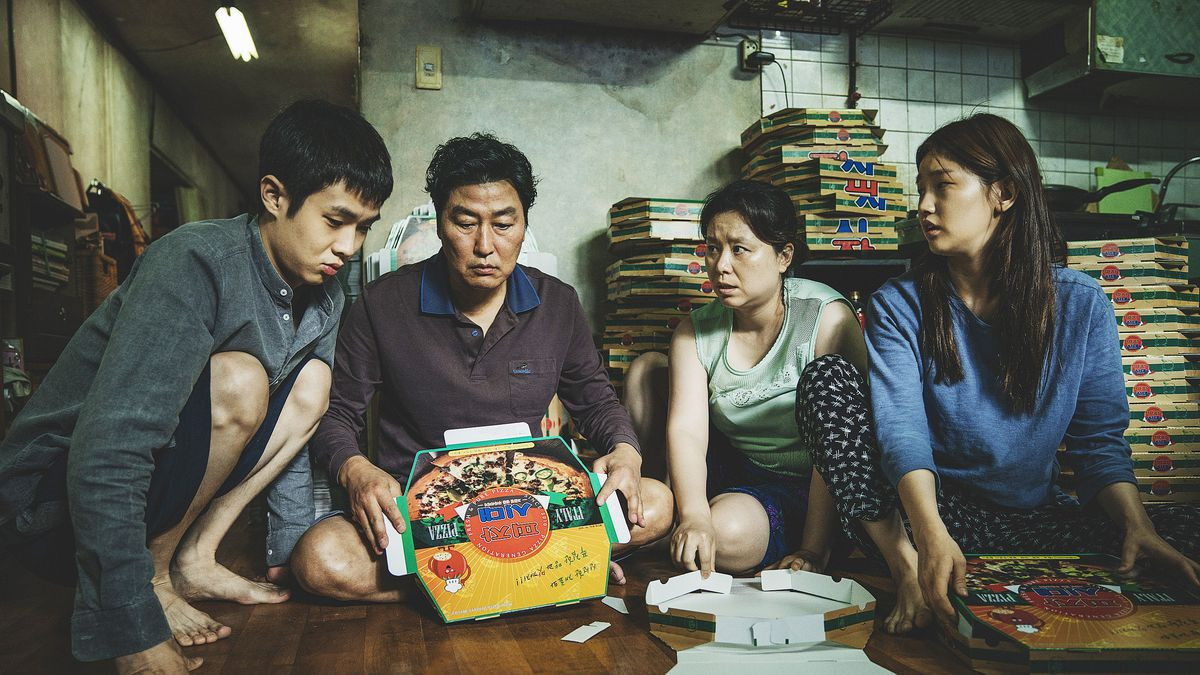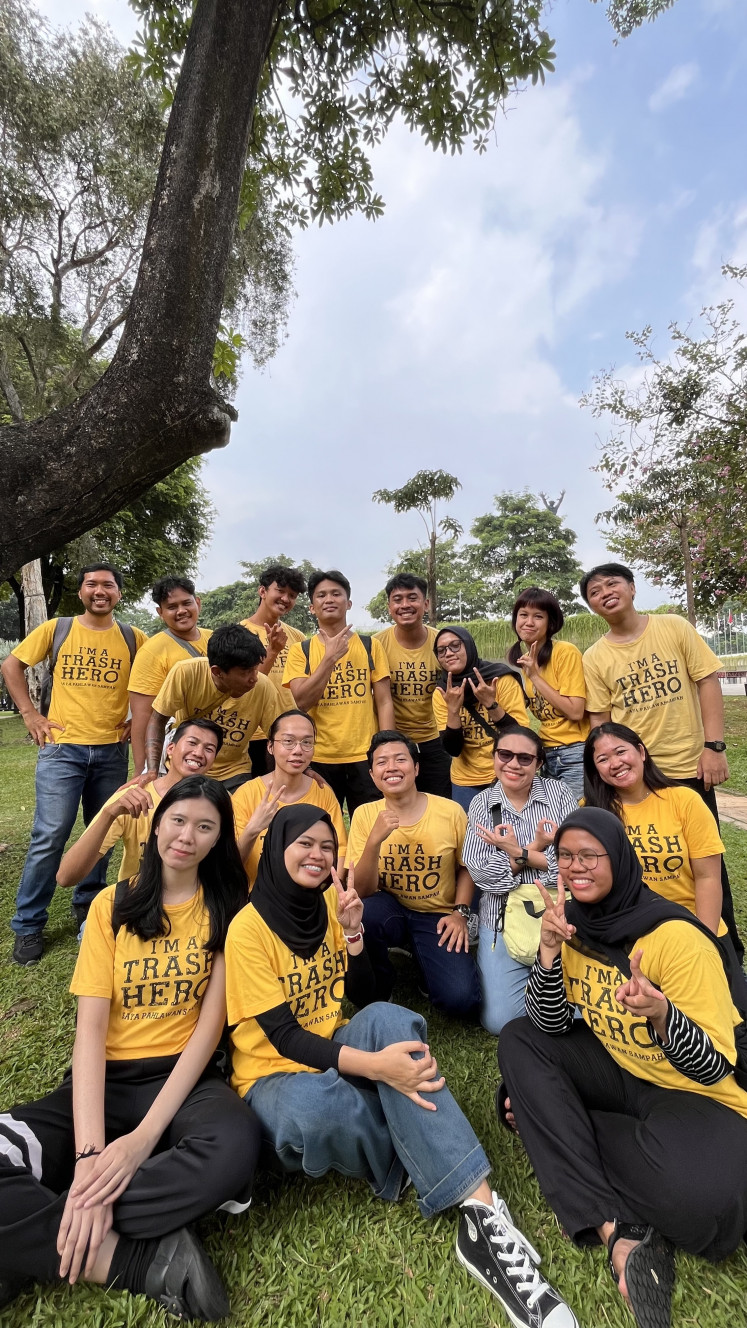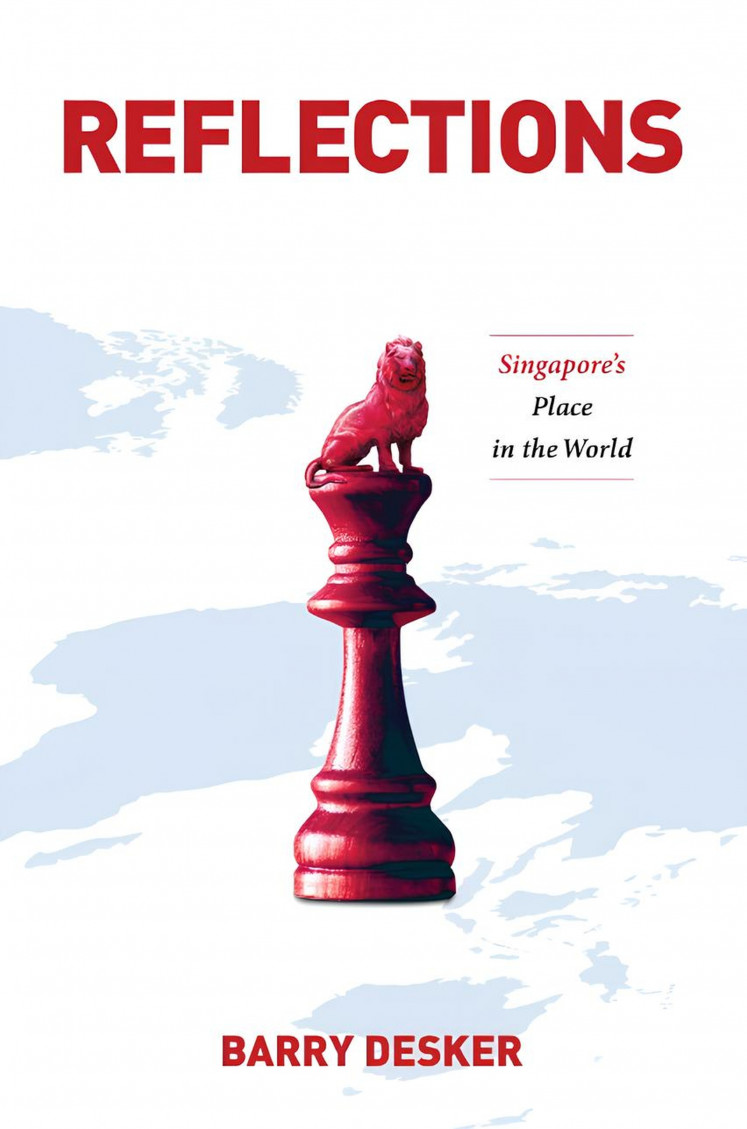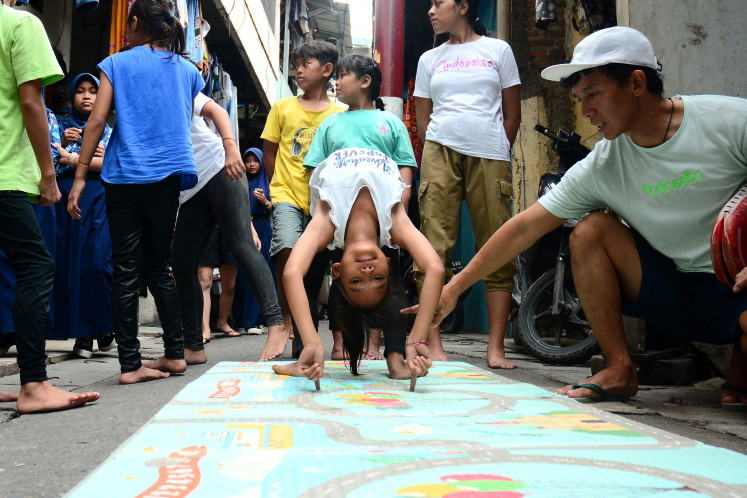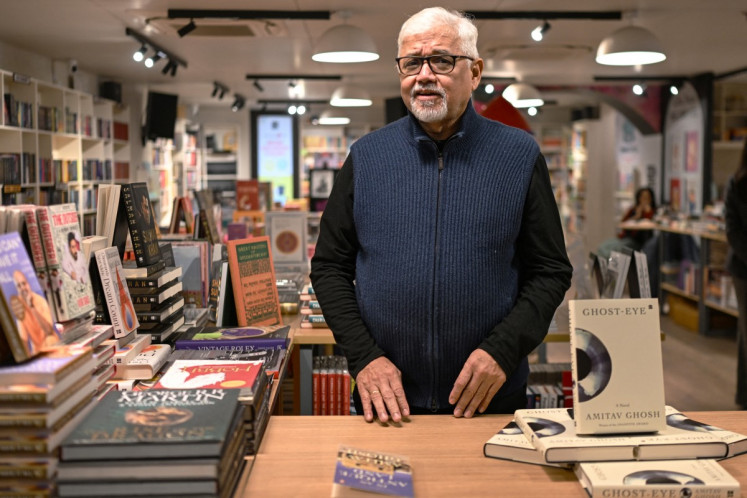Popular Reads
Top Results
Can't find what you're looking for?
View all search resultsPopular Reads
Top Results
Can't find what you're looking for?
View all search resultsBong Joon-ho's 'Parasite' a razor-sharp family tragicomic study on class rage
But somehow even in its weirdest form of classical battle royale mayhem, Bong Joon-ho's well-observed script and astute direction still offer an insight into the psychology of poor people with rage and jealousy building inside of them in ways that makes the movie so deeply grounded in our politics of living these days.
Change text size
Gift Premium Articles
to Anyone
T
he issue of class division between the haves and the have-nots has been addressed in films countless times, yet ironically, there is never too much of it, because this theme still runs deep through the veins of what happens every day in our society and demands to be shed in any form, including film.
Last year, two Asian films explored this issue in two distinct ways. One is Lee Chang-dong's Burning, which studies the jealously and psychology intimacy differences between the rich and the poor in an almost psychedelic way, and the other one is last year winner of Cannes' Palme d'Or, Hirokazu Koreeda's Shoplifters, which depicts poverty as the bond that unites a family.
But nothing, including those two aforementioned titles, will truly prepare you for the evocative and wild experience that Bong Joon-ho has masterfully crafted in his Palme d'Or winning Parasite, a sharp-razor family tragicomedy that also works as a laser-focused character study about class inequality and the mayhem of the pariahs of socioeconomic hierarchy.
The film begins in an underground, cockroach-ridden flat where a family of four are barely scraping by, getting a small income from folding pizza boxes while struggling to get a wifi connection from a nearby cafe. The family in question consists of Kim Ki-taek as the patriarch who believes that no plan is the best plan there is, his wife, Chung-sook is a WhatsApp addicted former athlete, and there's also the charming son Ki-woo and his whip-smart daughter Ki-jung.
Read also: Cannes winner 'Parasite' captures rich-poor gap in 'basic unit of life': Director
Bong Joon-ho could've easily portrayed this family in its most vulnerable moment to attract our empathy, but instead, he upends this expectation by displaying their cunning, manipulative, but nonetheless resourceful nature as Ki-woo scams his way to get a tutoring gig for a high-school girl named Da-hye, the daughter of the wealthy yet gullible Park family. His days of folding pizza boxes are behind when Ki-jung forges a false diploma for him.
As we all know, one of the most fundamental things about human beings is that we are creatures of want. We always want something bigger, juicier and meatier once we've achieved one milestone after another. Ki-woo is not an exception, of course. The difference is that, he doesn't just want this, he needs it to have a better life. So when he sees an opportunity to interweave his family to this wealthier counterpart they've never experienced before, without hesitation, he takes that chance and starts slowly infiltrating the Park mansion with his parents and sister without Mr. and Mrs. Park's knowledge.
Seeing them cunningly shoulder one person to another in order to get a higher footing in life is one of the most exciting scenes provided in the film. And Bong Joon-ho seamlessly cuts back and forth from the planning to the execution of their cons as if it were a heist movie that works like clockwork in with surgical precision, immediately building the suspense from zero to rocket high.
Yes, it will have you giddily laughing and rooting for them, but the devastating irony beneath the class system caused by modern capitalism that the film and our reality employ as a resemblance of a pyramid is deceptively layered in here, where one level can only hold a certain number of people, until new people occupy that space and kick out whoever is barely hanging on.
So when Ki-woo and his family slowly climb up this socioeconomic ladder, it means that the other person whose space they now occupy is kicked to the bottomless pit of poverty. It's a heartbreaking truth that happens almost every day. One person gets fired so that another person can get that new job.
I know that being poor is not a competition, but why does being rich have to be so? People always say that money isn't everything, yet we keep collecting it until we realize there will never be enough of it. Just like the bottomless pit of class hierarchy, our wallet is a chasm that will never be full no matter how much we put in it.
For those who are barely surviving, this oppressive nature created by the class system is like the hunger games, where there can only be one winner for each round, leaving the other to, metaphorically, die in the battle ground. Parasite vividly captures this sad but true conflict in the second half of the movie — which Bong Joon-ho has instructed us not to spoil — in an edge-of-your-seat tension and unconventional manner that will make your jaw drop to the floor.
Again and again, our expectations are subverted by Bong Joon-ho's creatively hilarious storytelling. We think we know where the film is going, but we just don't.
Parasite is not simply a binary film that can be put in one specific box. This is the kind of film that works in a spectrum, employing many genres from mystery to comedy to family tragedy and letting it bleed into one drum-beating rhapsody. It's an opera of brutality and a freak show from any angle.
But somehow even in its weirdest form of classical battle royale mayhem, Bong Joon-ho's well-observed script and astute direction still offers an insight into the psychology of poor people with rage and jealousy building inside of them in ways that makes the movie so deeply grounded in our politics of living these days.
One of the most apparent things that Bong Joon-ho provides visually is how he excellently emphasis the duality between the haves and the have-nots through the art of space and light. The film only takes place inside two houses, but when we take a closer look at it, this house works as a microcosm that represents the micro where the poor are living in an underground space with dim lighting and a sense of claustrophobia, while the rich's upper level house still looks glamorous even when there is a storm raging on.
Read also: 'Parasite', South Korean comedy about class rage, wins Cannes gold
There's one suspenseful yet heart-wrenching moment in the film where Mr. and Mrs. Park are so close to the Kims, they can smell the rotten stink of them under their nose, but are never quite aware of their presence or do something about it. At first it may look like just a filler, but it represents the truth about this class hierarchy, where the rich are actually aware that there are poor people whose smell screams help but instead do nothing about it because they are too comfortable to even stick their nose closer to them while enjoying their money.
It's not an easy job to destroy this social imbalance pyramid, but we can always do something to take the bricks out one by one if we want to. We can change this vertical way of living into something more horizontal, if we stop shouldering one another in this race of life. If we hurt people in this competition of having a wealthier life, those who get hurt will undoubtedly hurt us twice as hard, just as the movie shows us. It's a vicious cycle that will keep going on and on until blood is shed.
Parasite may not be suggesting any clear resolution to this class inequality and socioeconomic imbalance issues, but this movie will definitely grab you around your neck, suffocate you, drag your ass to unexpected places countless times, and leave you no room to breathe but plenty to contemplate. Your financial status quo may not be changed when the credit rolls, but your decency as a human being will be much richer the minute you set your foot outside the theater. A deserving Palme d'Or winner!
***
Reyzando Nawara is a film and TV series lover and self-proclaimed reviewer, who loves to look at the humane elements of cinema. He is very enthusiastic when it comes to micro-budget indie movies, especially the ones that feel like a character study. Would love to talk all day about movies and TV series. Go meet him on his Instagram account @reyzview

